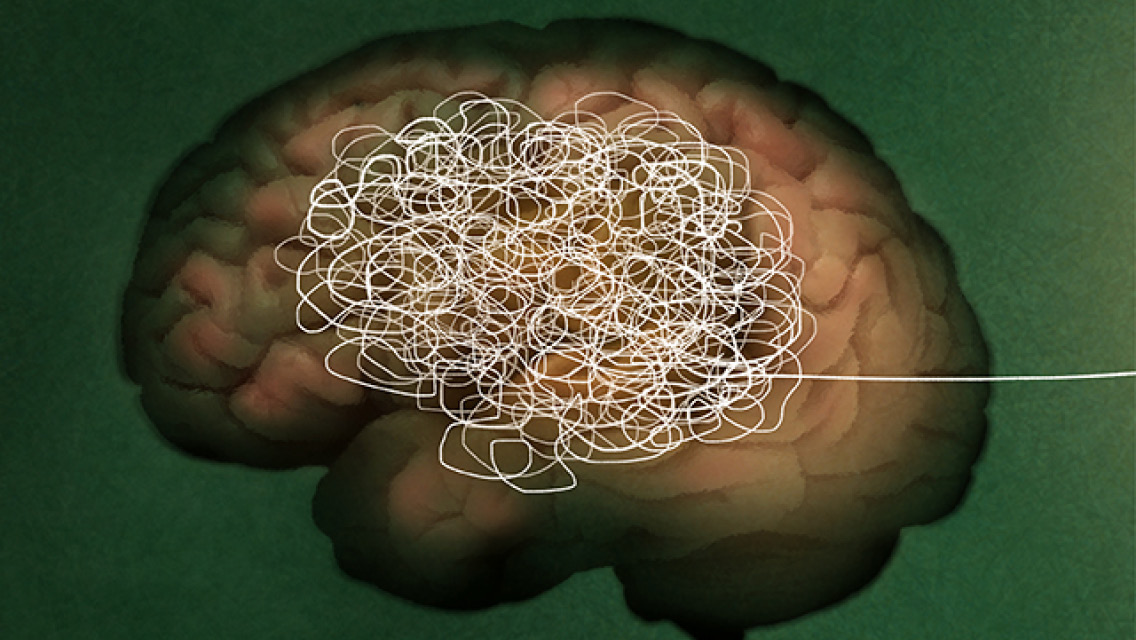My daughter, in a light-hearted attempt to celebrate my incipient dotage, once gave me a small book entitled 1,000 Unforgettable Senior Moments. Among the more memorable memory-challenged gaffes author Tom Friedman chronicles is the time President Jimmy Carter left the authenticator ID for the nuclear codes in the pocket of a suit that he sent to the dry cleaner. In a slightly less geopolitically disturbing vein, Friedman also recounts the numerous travails of British writer G. K. Chesterton, who once walked up to the ticket window at a train station and ordered a cup of coffee. Later, in a restaurant, he tried to buy a train ticket from his waiter.
I’ve certainly displayed my share of absent-minded episodes as I’ve grown older, and they can occasionally trigger dark projections of a future mired somewhere in the vexing depths of dementia. But I generally try to stay upbeat about the whole aging thing, a practice that recent research suggests may head off Chesterton-level zaniness down the road — even among those who are genetically predisposed to it.
Scientists have long been baffled by the fact that some of the people who carry a variant of the APOE gene — one of the strongest risk factors for dementia — never develop the disease. So, Yale University researchers set out to learn whether someone’s attitude toward aging might have a mitigating effect. The results of their study, published last week in PLOS One, seem to have answered that question in the affirmative.
Following a group of nearly 4,800 study participants with an average age of 72 over a four-year period, Becca Levy, PhD, and her team concluded that positive beliefs about aging significantly reduced the likelihood of developing dementia — particularly among those carrying the risky gene. Among all participants, those with optimistic views saw a 43.6 percent lower risk compared with those with negative attitudes; among those with the APOE gene variant, the optimists were nearly half as likely (49.8 percent) as their pessimistic counterparts to develop the disease.
“The results suggest that positive age beliefs among those with APOE ε4 could be capable of helping to offset the influence of this genetic risk factor,” the authors note. “APOE ε4 carriers with positive age beliefs had a risk of developing dementia that is similar to the risk of their same-aged peers without APOE ε4, regardless of age beliefs.”
When I mentioned this to My Lovely Wife the other night, she quickly concluded that the results were really a no-brainer. “It’s all about stress,” she explained. And, indeed, that’s what the Yale researchers concluded, citing a series of studies connecting negative thoughts to stress and stress to dementia.
This makes sense to me, but it doesn’t adequately explain why MLW’s father, a constantly optimistic fellow, drifted into Alzheimer’s in his 70s and didn’t make it to 80. Sometimes, it’s something else. Life is a crapshoot, after all, and it’s doubtful that any particular set of behaviors will guarantee any particular set of outcomes. Still, that’s not going to stop public-health advocates from doing all they can to boost geezer optimism in the coming years.
“We found that positive age beliefs can reduce the risk of one of the most established genetic risk factors of dementia,” Levy said in a statement released by the university. “This makes a case for implementing a public-health campaign against ageism, which is a source of negative age beliefs.”
Levy and her colleagues are actually a little late to this party. Swedish researchers two years ago released a study showing that negative attitudes toward aging shortened lifespans, and they recommended redefining our perceptions “to mirror all people’s practical experiences of ageing.”
And last summer, AARP and the Gerontological Society of America teamed up to publish a collection of 12 studies on ageism and health — one of which specifically linked ageist stereotypes to memory loss in older adults. The two organizations are now determined to shift the narrative about aging in America.
“Wherever these negative perceptions come from, the damage can be profound — for individuals, communities, and larger populations,” said AARP CEO Jo Ann Jenkins. “We need to change the conversation about age and aging in this country. This is not about being ‘polite,’ it’s a necessity.”
That may be so, but while I await this coming cultural transformation I guess I’ll just try to stay upbeat as I search for my misplaced car keys and puzzle over the name of the neighbor I ran into at the hardware store. As Friedman puts it, “If you can’t recall who your spouse is, you have a big problem and need professional help right away. Otherwise, you might as well laugh it off, which is what I try to do. When I can remember.”



This Post Has 0 Comments